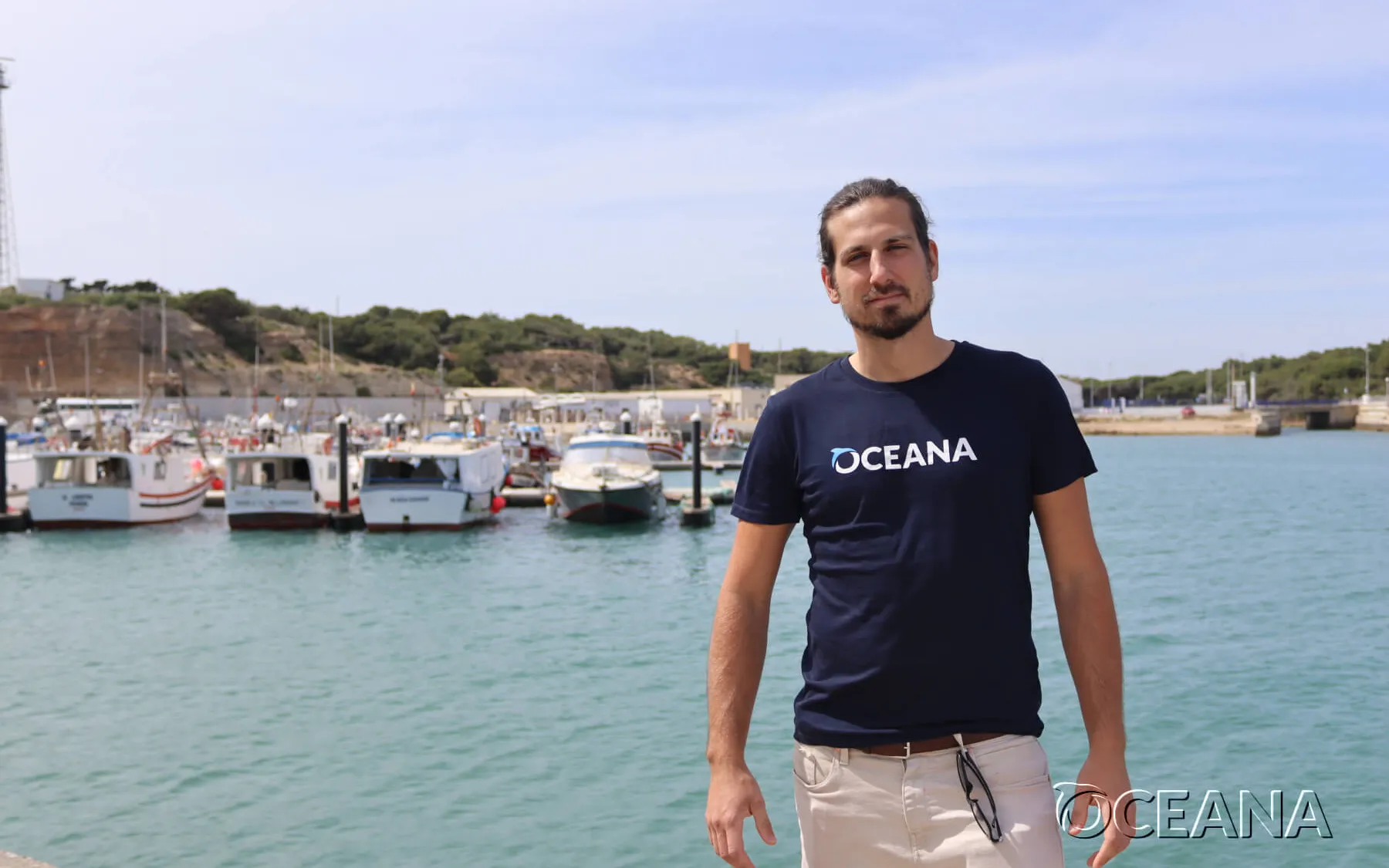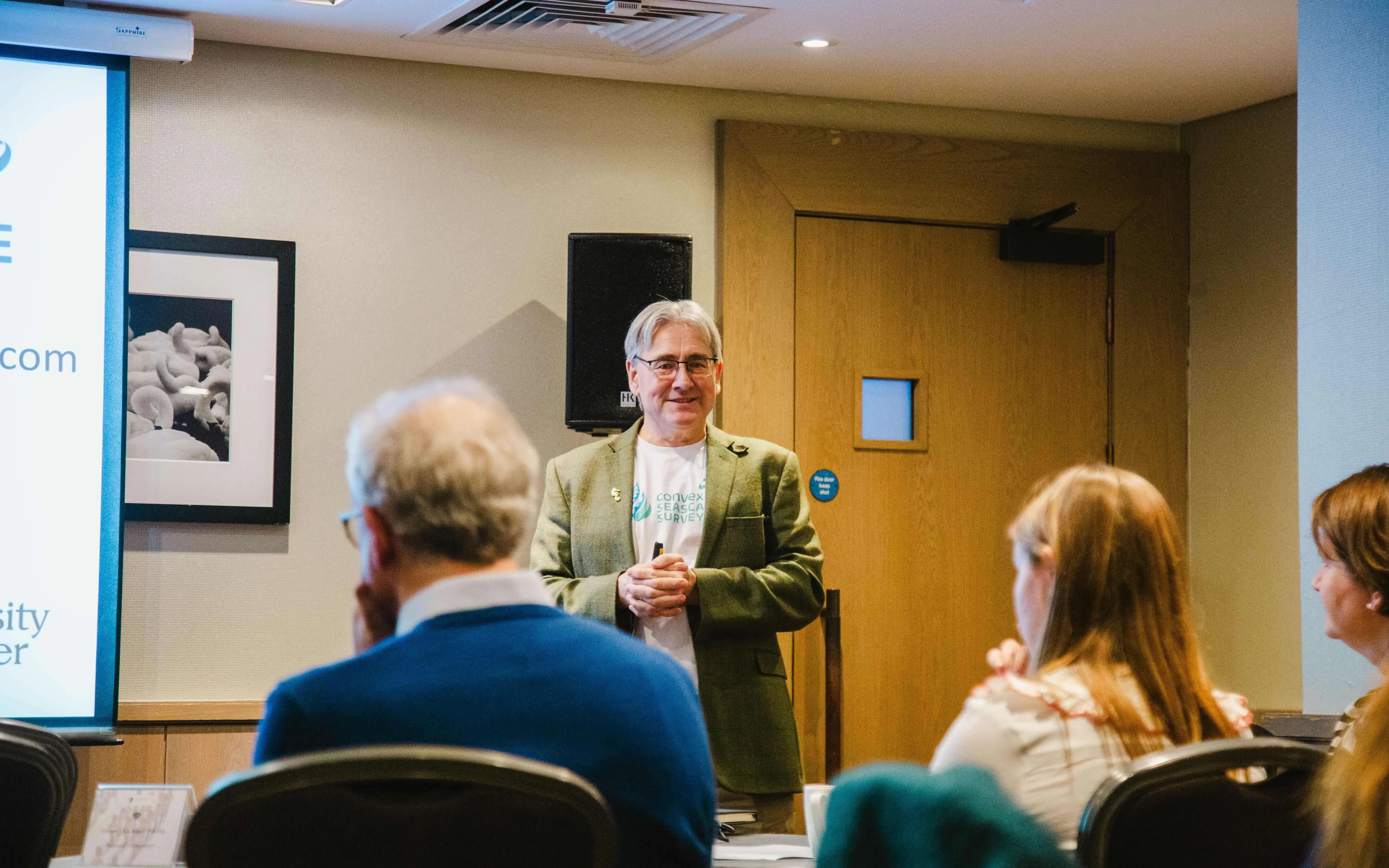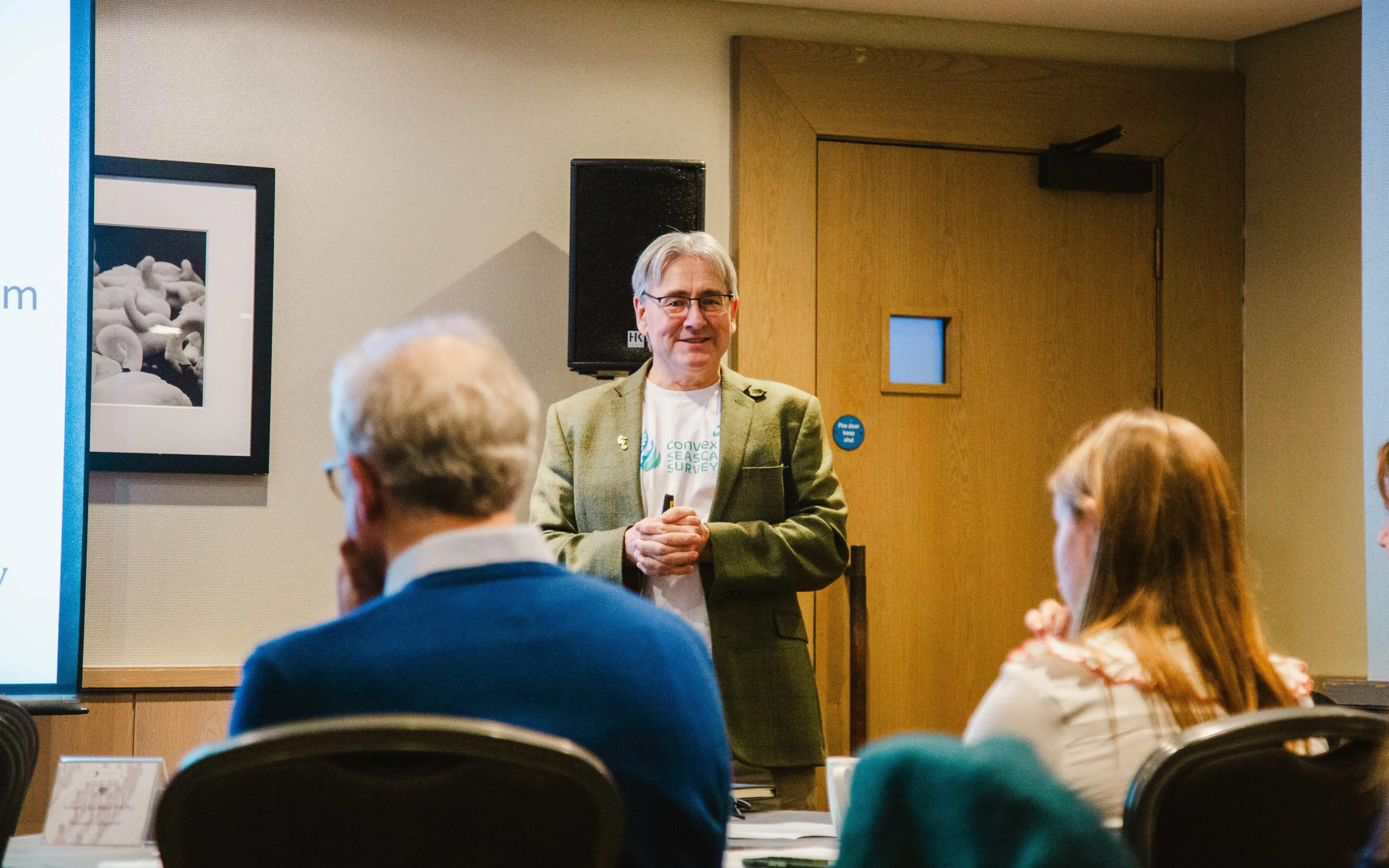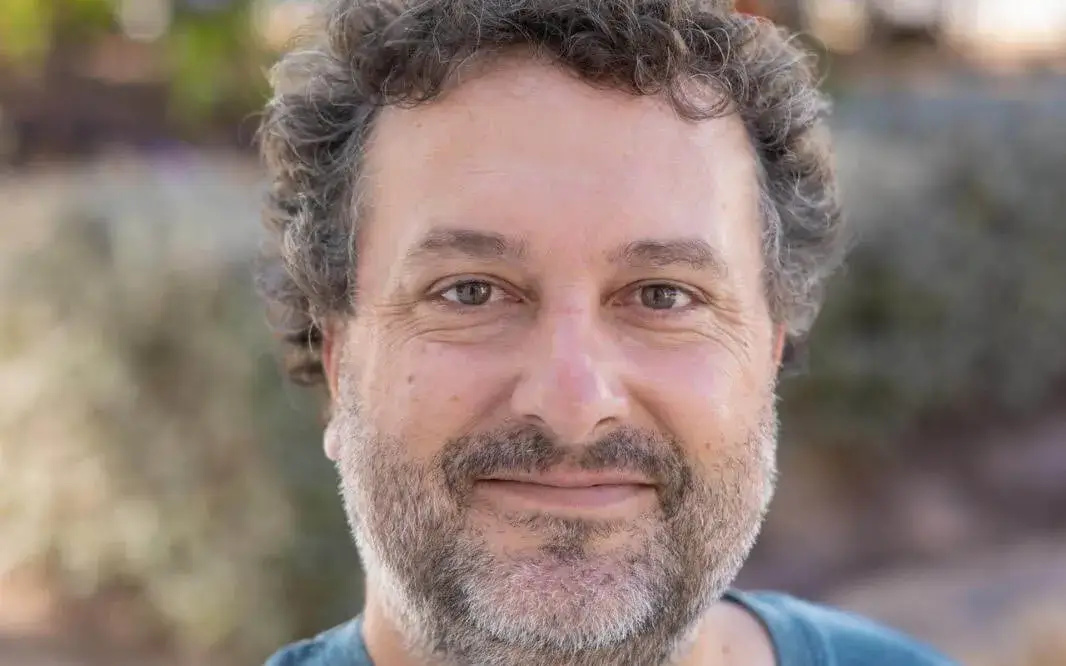Ignacio Fresco: "Illegal, unreported, and unregulated (IUU) fishing has multiple negative impacts on marine ecosystems"
Ignacio Fresco Vanzini, Political advisor to Oceana's illegal fishing and transparency campaign in Europe, shares with us the aims of Oceana's organization.
Oceana in Europe aims to conserve and restore European marine ecosystems and reduce the impact of European fleets globally by promoting sustainable practices and effective marine conservation policies. Illegal, unreported, and unregulated (IUU) fishing significantly harms marine biodiversity, the economy, and local communities by contributing to overfishing and habitat destruction. Oceana in Europe uses advanced technologies like Vessel Monitoring Systems and satellite imagery to detect IUU fishing and advocates for strict regulations, transparency, and public awareness to combat these illegal activities.
Can you provide an overview of Oceana in Europe's mission and main objectives?
Oceana in Europe is the largest international organization dedicated exclusively to ocean conservation. Oceana in Europe fights to return abundance and biodiversity to the seas by changing policies through research and scientific data in different parts of the planet.
At European level, we focus on conserving and restoring European marine ecosystems and reducing the impacts that the European fleet has on waters around the world, ensuring healthy and biodiverse seas for the future. We work to implement effective marine conservation policies and promote sustainable practices that benefit both marine life and coastal communities.
How important is the problem of IUU fishing for European waters?
Illegal, unreported and unregulated (IUU) fishing has multiple negative impacts on marine ecosystems, the sustainability of fisheries, and the economy and cohesion of coastal communities. It represents unfair competition for fishermen who comply with the regulations, affecting their income and economic viability. And some species, such as bluefin tuna, have been brought to the brink of collapse.
Although there have been enormous improvements in the last decade, there is still great overexploitation of fishing resources, especially in the Mediterranean. IUU fishing contributes significantly to the overexploitation of these resources, leading to the decline of species and greatly affecting marine biodiversity. Many times, the lack of regulation and control in fishing activities prevents sustainable management, making the recovery and conservation of entire ecosystems difficult. With the new Fisheries Control Regulation, the EU has taken enormous steps to improve the control of fisheries, but there is still much to do at the level of implementation and control, such as the installation of location systems on all vessels, the development of electronic catch reporting tools, remote electronic monitoring to control discards and estimate the impact of fishing on protected species, or controlling that vessels comply with engine power limits, are just some of the challenges.
On the other hand, IUU fishing can be more devastating when used on vessels that use more destructive methods, such as bottom trawls, which damage sensitive marine habitats such as coral reefs and seagrass beds. The incidental capture of protected species and juveniles puts biodiversity and the balance of ecosystems at risk.
What are the environmental impacts of IUU fishing on marine ecosystems?
IUU fishing is one of the main factors contributing to overfishing, the main reason for biodiversity loss in the marine world. The destruction of critical habitats affects numerous marine species, reducing biodiversity and altering ecosystems. Overfishing and IUU fishing are leading to drastic declines in fish populations, and putting some species (especially those with lower reproductive rates, such as sharks) at risk of extinction due to overfishing and uncontrollable fishing. The case of sharks is very emblematic, where they are illegally fished in huge quantities just to obtain their fins, highly valued in the Asian market.
How does IUU fishing affect local fishing communities and economies?
It is destroying entire economies and forcing local communities that depend on artisanal fishing, especially in vulnerable areas like West Africa, to migrate. New and large foreign vessels (normally European or Asian) sail under the flag of many countries that do not have the capacity to control or monitor their waters, in addition to not respecting quotas or fishing seasons. This fuels a drastic decline in fish populations and leaves these coastal communities with fewer and fewer resources and, therefore, insufficient income to support their families.
This is the case of the overexploitation of small pelagic fish in areas such as Mauritania or Senegal, where foreign vessels use them to make flour that is then used as feed, instead of being used by coastal communities. This deterioration of marine resources not only affects the local economy, but also food security, as fish is a vital source of protein for coastal communities. Despair and lack of economic alternatives drive many fishermen to migrate, often taking dangerous routes to Europe in search of a better life.
What methods and technologies does Oceana in Europe use to detect and monitor IUU fishing activities?
Among the most notable tools are the Vessel Monitoring Systems (VMS) and the Automatic Vessel Identification System (AIS). The first consists of satellite devices installed on fishing boats that transmit their location in real time to the authorities. To access this data, we make a request for access to information to the competent authorities, and we analyze the data to see behavioral patterns.
The second, the AIS system provides us with detailed information about the identity, position, course and speed of a vessel, which can be monitored publicly through platforms such as Global Fishing. Watch or Skylight . This tool is essential for us to identify and monitor the activities of vessels, detect suspicious or illegal behavior.
Additionally, we are in contact with companies that use satellites equipped with remote sensors that capture high-resolution images of the ocean. These images allow us to detect illegal fishing activities in remote and difficult-to-access areas.
Oceana in Europe also has a vessel, the Ranger, which carries out scientific and research expeditions to collect direct data on marine biodiversity and fishing activities. These expeditions have provided us with scientific and visual evidence of IUU practices, supporting conservation campaigns and management policies.
Finally, Oceana in Europe collaborates closely with public entities such as the European Fisheries Control Agency (EFCA) as well as the competent national authorities.
Can you describe a recent success story where Oceana in Europe has helped combat IUU fishing?
Oceana in Europe has played a key role in the approval of the new European Union Fisheries Control Regulation, approved at the end of 2023 after intense years of work. This historic legislation will improve the control of fishing activities and will require the installation of geolocation systems on all EU fishing vessels, including artisanal vessels (more than 49,000), which will allow them to be identified at sea. This law will increase the transparency of the fishing sector, improve fishing efficiency and combat illegal fishing.
The obligation to place geolocators on all vessels adopted in the new Control Regulation, which comes after five intense years of negotiations between the EU institutions, will come into full force in 2030, giving shipowners and operators of fishing vessels enough time to equip their vessels with the necessary technology.
What policies can Oceana in Europe advocate in Europe to better combat IUU fishing?
Oceana in Europe works to ensure that European governments and administrations adopt coherent and ambitious laws, and apply them efficiently, to ensure that all fishing activities are effectively controlled and ecosystems protected.
Among these measures are some such as the installation of an electronic monitoring system to prevent vessels from entering prohibited or protected areas, improving the reporting of catches that allows us to have real and valid information on what is extracted from the sea, and the collection efficient data, especially of sensitive species. Likewise, we work to ensure that there is a mandatory traceability system for all fishery products, from the point of capture to the final consumer, to ensure transparency in the supply chain and prevent illegal products from ending up on our plates.
We also work at an international level, within the framework of Regional Fisheries Organizations, and monitoring the Sustainable Fisheries Agreements that the EU signs with third countries. In such bodies and agreements, we advocate for global transparency policies that reveal what is happening in the ocean, for example by allowing free access to direct information about who fishes what, where, when and how. We defend and promote the World Charter for Fisheries Transparency with the 10 basic principles and measures that every country with a fishing interest should implement. In particular, we have a campaign to make public the actual ownership of fishing vessels, that is, to unmask and sanction the owners of illicit vessels, that is, those who benefit from possible infringements and bad practices at sea.
How effective are current EU regulations in tackling IUU fishing, and where have they fallen short?
The EU has pioneering legislation worldwide to control the fishing fleet and fight against illegal fishing. Above all, Regulation 1005/2008 on the Fight against Illegal Fishing, and Regulation 1224/2009 on Fisheries Control stands out.
The first includes measures such as the prohibition of importing illegal fishing products, the identification of non-cooperative countries in the fight against illegal fishing, and the sanction of companies and European nationals involved in IUU practices, regardless of where they take place. A crucial component of this regulation is the Catch Documentation System, which requires all imports of fishery products into the EU to be accompanied by validated catch certificates, improving traceability and making it more difficult for illegal fish to enter the European market.
The second, for its part, establishes a European regime to ensure compliance with the rules of the Community Fisheries Policy by the European fleet. This regulation covers everything from capture and landing to transportation, marketing and traceability of fishing products. It introduces measures such as the use of vessel monitoring systems (VMS) and automatic identification systems (AIS), as well as the obligation to record and report all fishing activities.
The main problem, however, is the uniform application between the different Member States. While some countries have robust control systems and sufficient resources for surveillance and law enforcement, others lack the necessary means. This creates loopholes (for example, an illegal product may not enter the European market through the borders of one Member State, but through another with fewer controls). The lack of resources and personnel in certain Member States limits the ability to carry out comprehensive and continuous inspections, thus weakening the effectiveness of the regulations.
The process of identifying and sanctioning countries that do not cooperate in the fight against IUU fishing also presents difficulties. This process can be slow and bureaucratic, delaying the actions needed to address IUU practices in real time. Furthermore, these decisions are often influenced by political and diplomatic considerations, sometimes resulting in a lack of action against countries with clear evidence of IUU fishing (such as China).
Finally, there are enormous difficulties in identifying European companies and citizens who fish illegally in third countries or in international waters. The lack of a registry of ship owners in third countries means that ships under European ownership may be illegally exploiting resources throughout the ocean.
How can the public help in the fight against IUU fishing?
The public can play a crucial role in the fight against IUU fishing through actions that promote sustainability and transparency in fishing activities. For example, as consumers we can ask about the origin of the fish we buy when we go to the fishmonger or consult the labels of processed products, such as tuna and sardines, even though they often do not contain sufficient information. When buying, we can opt for locally caught, sustainably caught species, even if they are less known. In this way, we can balance the fishing pressure, which usually falls on a few species.
Another option is to get involved in NGO campaigns , such as Oceana in Europe, that work to combat IUU fishing. Participating in actions and informing yourself about the dangers of illegal fishing is key to understanding the issue and being able to pressure policymakers to pass stricter laws and regulations against IUU fishing.







Add new comment